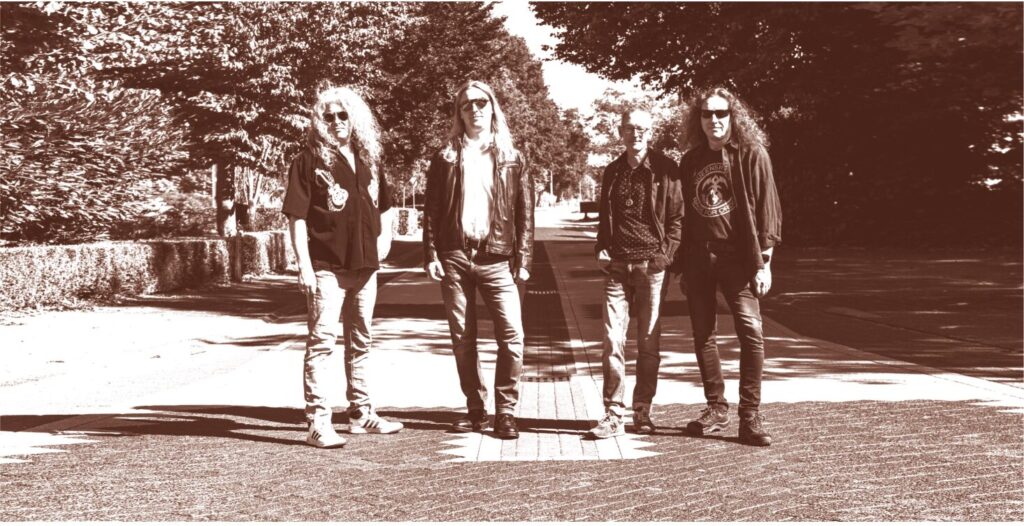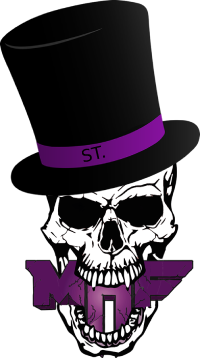What was the beginning pint for your music career? How did it all start?
My journey in music began with classical piano and vocal training as a child. Over time, I taught myself guitar and discovered the joy of creating my own songs. In 1995, I started ELOAĦ as a solo singer-songwriter project, which gradually evolved into a collaborative effort. Early improvisation sessions with gifted musicians like my mentor and late friend Jörg Horner, were defining moments that solidified my passion for music and collaboration. From those humble beginnings, the project grew into a space of constant musical exploration and personal expression.
Was there any bumps on the road? What kind of challenges did you have to deal with?
Certainly, the road has had its share of challenges. Navigating the digital landscape has been particularly demanding. The sheer saturation of music today makes it difficult to stand out while staying authentic. Additionally, balancing creative work with the business side of music requires perseverance. On a personal level, dealing with loss, like the passing of close friends and collaborators, brought emotional challenges that I channelled into my music. Despite these obstacles, the joy of creating and connecting with listeners has always kept me going.
What was the most fulfilling and satisfying moment so far?
One of the most fulfilling moments was holding our latest album, The Book of Pain, in my hands. It represents not only a creative milestone but also an emotional one. The process of transforming deeply personal struggles into music that resonates with others is incredibly rewarding. Moments like these remind me why I started this journey in the first place.
How would you describe the music that you typically create?
I would describe our music as experimental, idiosyncratic, and emotional. It blends elements of rock, jazz, new age, and improvisation, creating a unique sound that explores themes of introspection, grief, and hope. Each project is distinct but grounded in emotional honesty, aiming to take listeners on a meaningful journey.
What is your creative process like?
My creative process is intuitive and often begins with improvisation. I pick up my guitar or sit at the piano, allowing chords, melodies, and lyrics to emerge naturally. Sometimes the spark comes from collaborating with other musicians, where group improvisation brings new ideas to life. I always try to capture the essence of these moments quickly, refining them later as needed. It’s an organic process, driven by inspiration and emotional expression.
If you could change anything about the industry, what would it be?
I would advocate for a fairer compensation model for streaming services. Music has intrinsic emotional value, yet it’s often treated as a commodity. Increasing streaming revenues for artists would better reflect the time, effort, and artistry invested in creating music. This change would help sustain independent musicians and encourage authentic, meaningful work.
If you were asked to give a piece of advice to upcoming bands, what would that be?
Stay true to your unique sound and passions, regardless of external pressures. Don’t chase trends or validation—focus on creating music that resonates with you. Work hard, embrace the process, and surround yourself with people who inspire and support you. Most importantly, enjoy the journey and trust that the right audience will find you.
What has been the best performance of your career so far?
One of the most memorable performances was at the Musichouse in Graz, Austria, in 2001. The energy of the audience, the seamless connection with the other musicians, and the joy of playing live made it an unforgettable experience. Moments like these capture the magic of performing and remind me of the power music has to bring people together.
If you didn’t become a musician, what would you be doing now?
I would likely continue my work as a physicist and science manager, which I already balance alongside my music. My fascination with science complements my artistic side, providing inspiration and intellectual fulfilment. I also enjoy teaching, managing research projects, and practicing Japanese martial arts, which offer discipline and focus.
What is new with the band at the moment? What are you currently working on and would like to share with the world?
We recently released our album The Book of Pain, and we’re currently producing its LP version. Simultaneously, we’re working on a new album that will explore gospel, jazz, and hymn-like influences, a new and exciting direction for us. This project allows us to push creative boundaries, and I can’t wait to share this fresh dimension of ELOAĦ’s music with the world.



